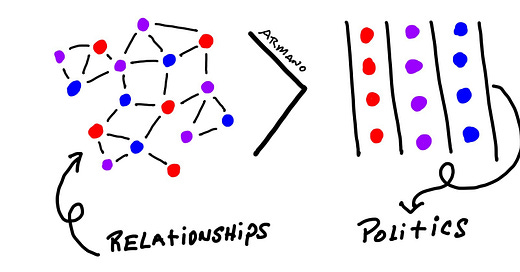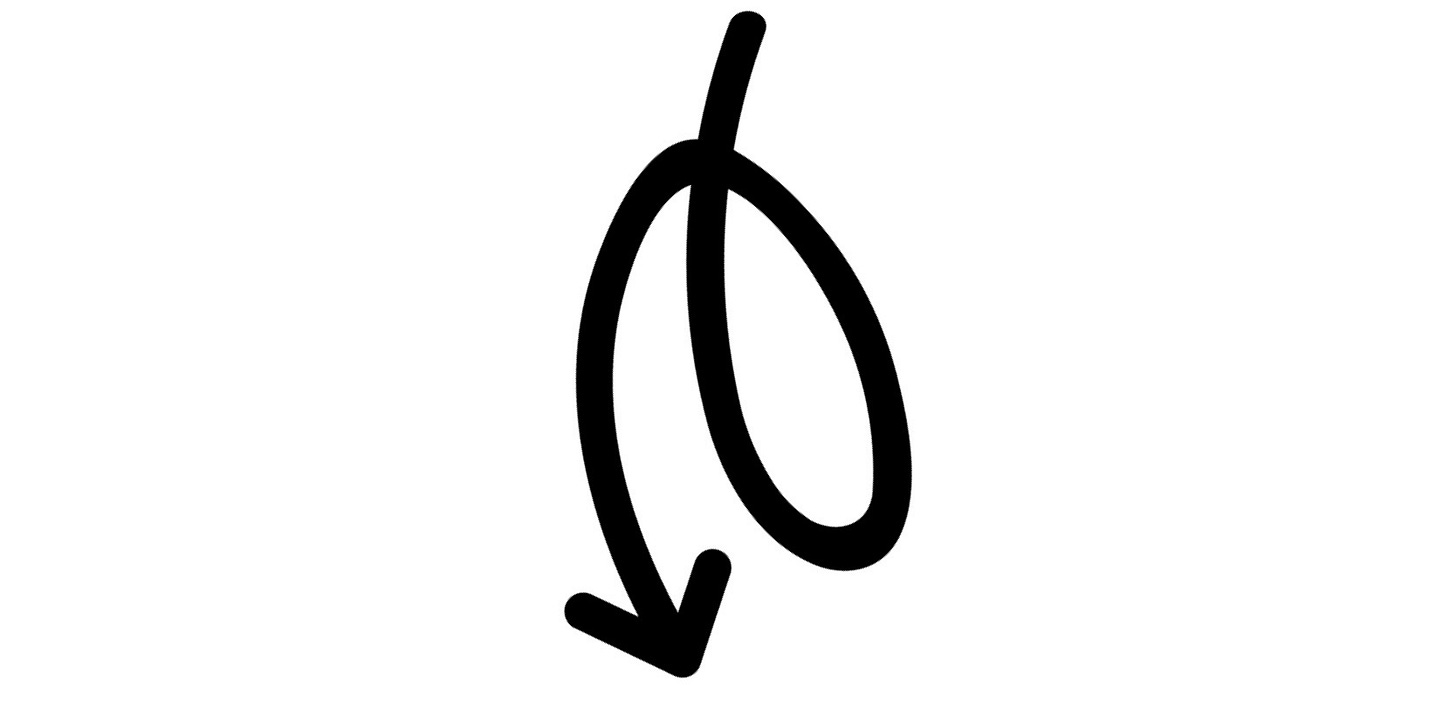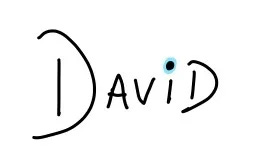I’ve been thinking about my life lately, including the past, present, and future. One thing that keeps coming up as I examine it is that I’ve always lived in between worlds, so to speak. In high school, I remember having friends from different cliques and groups. One minute, I’d run laps with the wrestling team, and another, I’d paint a mural with the artsy kids. Then, maybe over the weekend, I’d be at a concert with the metal heads. This foundation continued into my adult professional life and became especially prominent during the early blogging years, which ironically felt a lot like high school in terms of groups and cliques. One day, I’d be discussing design topics with the UXers and experience designers; and another, I’d discuss social trends with the brand planners, marketers and strategists. Living in between worlds and social circles is a unique experience in several ways. On one hand, you never fully feel like a card-carrying member of a specific group because of your participation outside the sphere. On the other hand, the breadth of different perspectives makes you approach things distinctively different. Most importantly, it gives you an appreciation for diverse viewpoints connected to the various lived experiences of those in various groups. During the height of the “blog years,” I can remember the words of a very well-known “UXer” who made a passing comment as my career began to get more traction within the world of marketing:
“You went over to the dark side.”
This same person now works with design executives, who likely must work closely with their peers in marketing, legal, sales, etc. Imagine the kind of counsel you’d be giving an executive when the past version of yourself has viewed peer disciplines as “the dark side.” It would be challenging to provide quality counsel. Ironically, right now, I am mentoring a design/product team, and my experience working with professional peers in marketing, sales, etc., has allowed me to see things from multiple perspectives and carry that into my counsel. The more time we spend with people with vastly different and sometimes competing and contradictory viewpoints, the more we can appreciate the motivations of these people, even if we have differing opinions of our own.
Relationships > Politics
As I write this on the evening of the 2024 presidential election, I think we face a choice that is just as, if not more important than, the choice we’re making in the ballot box. The choice to prioritize our relationships over our politics. This choice becomes even more critical as political polarization becomes even more divisive. I can’t tell you how many posts and videos I’ve seen of people getting into each other’s faces, devolving into physical confrontation in some instances. Still, it’s not only strangers, it’s daughters disowning fathers, mothers disowning sons or siblings becoming estranged, or friends/colleagues cutting each other off based on political preferences, beliefs, or votes. In so many of these cases, I can’t help but think…
“This is what they want.”
“They” are the power brokers of the nation, and they can only come to power through a democratic vote. Increasingly, the democratic vote is turned out by getting voters so excited to vote favorably that they need to see the opposition as an existential threat. The system has backed itself into a corner this way—it’s not that the system wants its citizens at each other’s throats. It’s just that past norms to motivate voters are so much less effective, so politics and candidate rhetoric now have to play within the bounds of existential threats if they are to motivate voters. The side effect of all of this is that some if not many, relationships will end over the differences in political stances, issues, opinions, and deeply held beliefs.
If I am being frank with you, I get it. Who wants to be friends with a fascist? Or who wants to spend time with someone who believes censorship is good? The modern world has many ways to shelter us, so that we only interact with people “like us”, from geography to social media, to the workplace. But we will inevitably cross paths with people who share different politics or beliefs, such as on a road trip or something closer to home, like a family reunion. And when that happens, we often come face to face with how divided many of us are when it comes to certain issues. It is this divisive dynamic that I refuse to participate in, even though I see and feel the temptation. I reject the premise that I can only enter into or maintain relationships with the people I agree with on every societal/political/religious belief. Life is too big and short for that, and relationships are just too meaningful and necessary.
I’m going to publish this on the morning after election day. We may or may not have a new president or a final decision. I do know, however, that regardless of the outcome, my personal choice regarding differences in views and where this comes into conflict with the existence of a relationship will be to preserve the relationship every time.
Relationships connect us. Politics separate us. I choose relationships.
Visually yours,







This is great David. We all need a lot of help these days navigating polarization views and visceral reactions in terms of our relationships--especially with those demonstrating vastly different views and only 1 or 2 degrees of separation.
Excellent writing David thanks for this I hope it helps people.